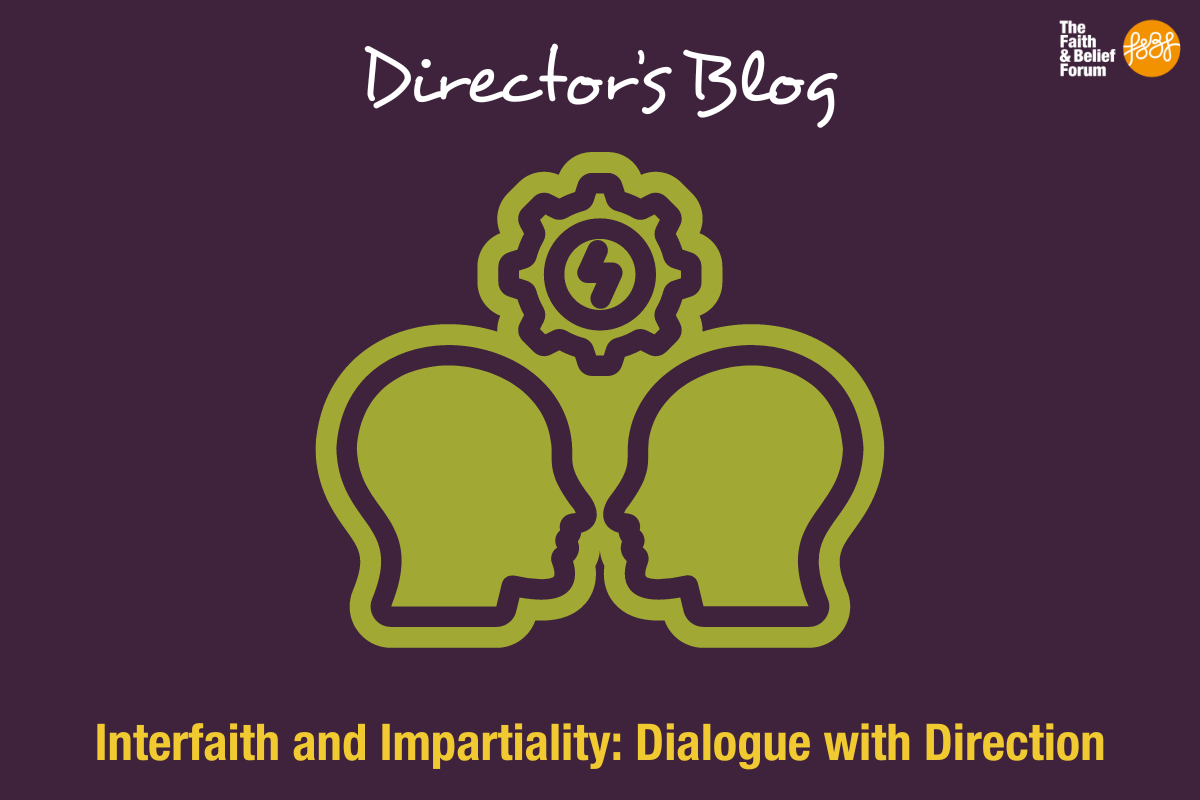
Challenging Faith Based Hate: True Stories
16 / 02 / 24
Menu

08 / 02 / 18
 This month’s theme for Interfaith Voices is ‘the presence of faith’. Here, Lu writes about the complexity of identity, focusing on how their Christian faith and non-binary identity intersect. Lu considers the presence of faith throughout their life, reflecting on how they came to where they are now.
This month’s theme for Interfaith Voices is ‘the presence of faith’. Here, Lu writes about the complexity of identity, focusing on how their Christian faith and non-binary identity intersect. Lu considers the presence of faith throughout their life, reflecting on how they came to where they are now.
Last year, I went back to church. I walked through the door, sat quietly near the back, had a blessing and cried my eyes out afterwards. For the first time, I didn’t feel unsafe or in danger. God was present, and so was I. I introduced myself as Lu, my new name (a shortened version of its original, but nonetheless, a step) and when asked, said my pronouns were ‘they’, and ‘them’.
 Simply put, I came out. Another coming out, a coming out before God, a coming out as non- binary.
Simply put, I came out. Another coming out, a coming out before God, a coming out as non- binary.
Being non-binary means that I don’t identify as a man, or necessarily a woman. I exist outside of the ‘binary’ of gender. My gender presentation is androgynous and the pronouns I use give no explicit indication of my gender identity. Simply put, I transcend, transgress and am transgender. This often feels like a strange and lonely place to be. Day to day, people don’t always understand. They make assumptions, misgender me and pass judgement on pronouns (l didn’t create English grammar, I’m sorry the singular ‘they’ is hard for you, but it makes me feel real!). At its worst, I’ve been kicked out of toilets, spat at, followed home, been refused service and assaulted.
People are scared of what they don’t know, especially when bodies are concerned.
Considering I’m rebelling against established boundaries and cultural codifiers of what it means to be a gendered human being, it may seem like a bit of an oxymoron that my Christian identity is within the Church of England; an organisation that I think famously relishes order and control, especially when human sexuality and gender identity is concerned. Add this to the fact that I did a BA in Theology, an MA in Biblical Studies, and one year of a Biblical Studies PhD and there is a whole conundrum of academic education, queer identity, biblical understanding and personal faith in the mix. I resisted the presence of faith when I was studying; God for me was a character in a novel, a male chauvinist who barred me from access. Although I resonated with characters like Jacob who I read as a trans person, and the Daughter Zion in Ezekiel and Lamentations; they still felt distant, academic texts to be dissected in Hebrew and put into essays filled with objective points of how YHWH was wrong, and I was right. However, with time and with healing, along with lots of anger, my faith and my identity as a Christian has become far more than that. Since coming out as my authentic self, I feel as if I can be more authentic with God.
I’m reclaiming my body, my name, my pronouns and my voice, if that isn’t a spiritual act, I don’t know what is.
I was asked recently how I could justify being a non-binary person and still go to a Church of England church. ‘With difficulty’, I answered, before trying to explain what the church I go to does for the local community, how it invited me in with open arms, tells me I’m wanted, loved and valued, just for being who I am. I don’t feel so isolated in my faith anymore, it’s with me wherever I go, present at every turn, at work and at home. I’m part of a community that isn’t LGBTQ+ inclusive in name alone, I am included in its theology, its worship and in the Eucharist. The discrimination, pain, and hate is not brushed off with a ‘God is love’, but with a real affirmation that I am more than my physical self, and that message is one that Jesus, for me, came to deliver.
As this path continues, I don’t know where I’ll be, but, I know that God knows and loves me intimately. I don’t think the Church does, but I’m not scared of that fight. All I ask is for inclusion, not to be tolerated, but to be affirmed.
Lu Skerratt is a 23 year old activist from Sheffield. Lu works in sexual health with a special interest in the health inequalities experienced by Lesbian, Bisexual and Queer+ identifying women. Alongside this Lu also co-founded Lesbian Asylum Support Sheffield (LASS), an organisation that provides a safe and empowering space for LBTQ+ and non-binary asylum seekers in South Yorkshire.

16 / 02 / 24

15 / 02 / 24

16 / 01 / 24